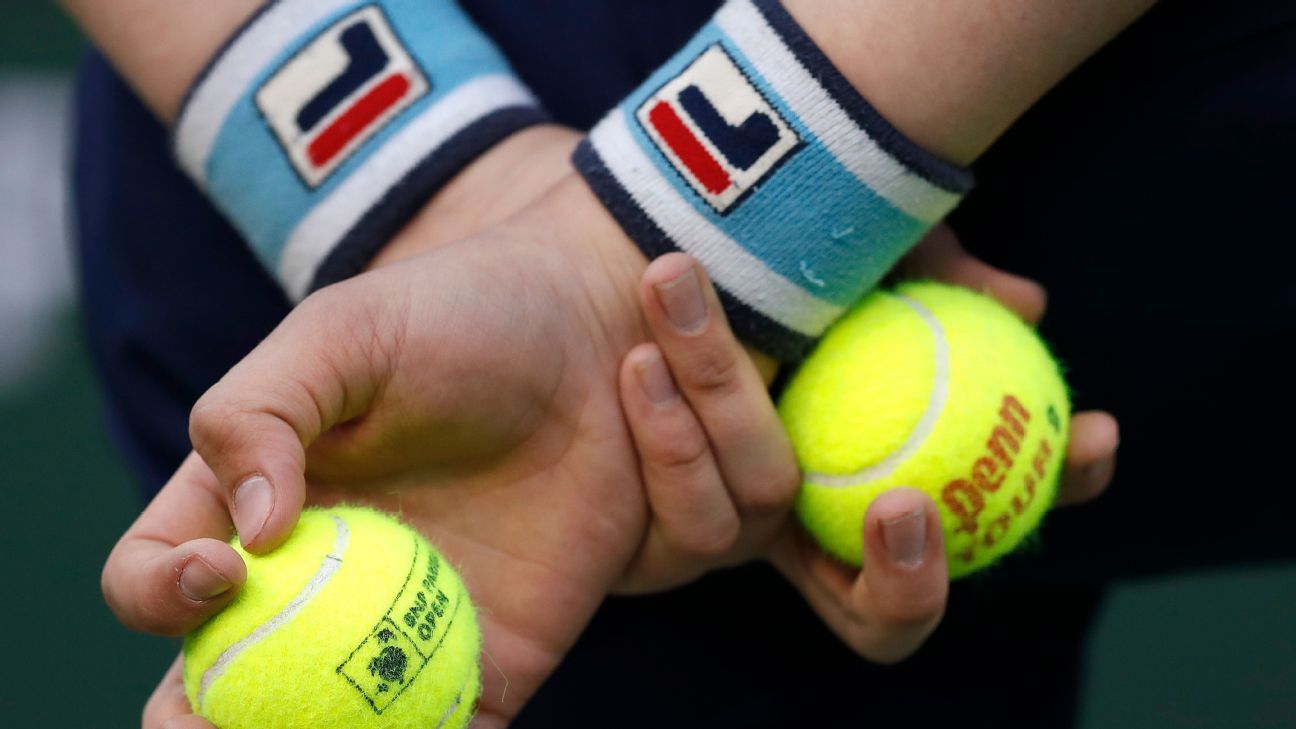The Association of Tennis Professionals has suspended the tour for six weeks due to escalating concerns over the health crisis caused by the coronavirus pandemic.
In a news release published at the ATP World Tour’s website, ATP chairman Andrea Gaudenzi said, “This is not a decision that was taken lightly and it represents a great loss for our tournaments, players, and fans worldwide. However we believe this is the responsible action needed at this time in order to protect the health and safety of our players, staff, the wider tennis community and general public health in the face of this global pandemic.”
The Women’s Tennis Association is not a partner in the decision and, according to sources, is working on a strategy of its own in consultation with players and tournament stakeholders. It seems likely that the WTA will issue a similar suspension.
The International Tennis Federation also announced Thursday that it is suspending play until April 20 at the earliest.
The ATP’s decision, announced scant hours after the Miami Open combined event was suspended by Miami-Dade County Mayor Carlos A. Gimenez, will affect five additional tour events, three relatively low-value clay-court events (including one in the United States, in Houston) and two significant ones: the Monte Carlo Masters 1000 and the prestigious Barcelona tournament, an ATP 500 tournament.
The cancellation of the Miami Open and Monte Carlo on the heels of Sunday’s suspension of the Indian Wells tournament means that three of the nine men’s events that rank right below Grand Slams in terms of rankings points, prize money and renown will not be played.
The decision to suspend Indian Wells and Miami, both taken by public health officials, had stoked fears that even if the tour were determined to continue, it would be at the mercy of a diverse, international body of government officials. Tennis officials felt that could lead to confusion and chaos.
“The worldwide nature of our sport and the international travel required presents significant risks and challenges in today’s circumstances, as do the increasingly restrictive directives issued by local authorities,” Gaudenzi said.
In Miami, Gimenez’s decision to suspend the Miami Open, like Indian Wells a combined (ATP/WTA) mega-event, is part of an officially declared “state of emergency” triggered by the coronavirus. The lockdown also applied to other outdoor sporting events as well as all major events at AmericanAirlines Arena.
In the four days since Indian Wells was canceled, a domino-like effect has swept through sports resulting in the widespread cancellation or radical reconfiguration of some of the most widely followed and viewed sports events, including the suspension of the NBA season. The Fed Cup, an important women’s international tennis competition planned for April, was canceled on Wednesday.
Tennis officials found themselves in an increasingly difficult situation since they began to meet Sunday to address the impact of the Indian Wells cancellation and to seek a path forward as fears about the spread of COVID-19 snowballed.
President Donald Trump’s announcement Wednesday night of a comprehensive travel ban made the decision easier. It meant that tennis players would be severely restricted traveling to or from the United States for at least the next 30 days.
A high-ranking tennis official taking part in discussions about future events told ESPN: “We were trying to make a decision, but the president made it for us.”
